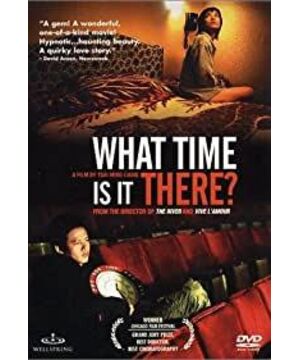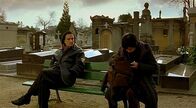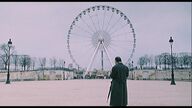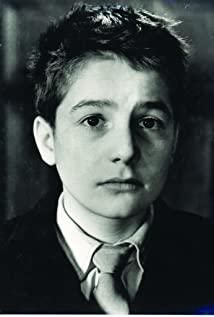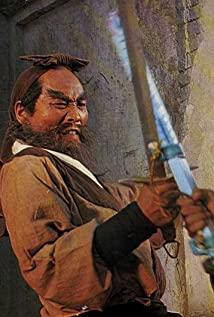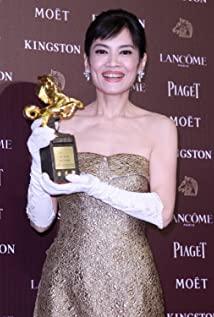In Taipei, where they live, people are always looking for that kind of steady comfort.
With the death of the film's patriarchal father, Miao Tian, his wife and son, Xiaokang, are victims of repeated mundane lives: the surviving wives who, day in and day out, devote themselves to the reincarnation of their husbands. Son Xiaokang's behavior was even more affected. He was afraid to go to the bathroom at night and use a bottle or plastic bag to relieve himself, because he was afraid of suddenly encountering his father's soul.
Xiaokang sells the latest watches on the flyover every day. It seems like an ordinary job, but it makes him fall into an existential crisis. link. As the only medium separated from his father, Kang refused to resell the watch bequeathed by his father at first. .
In the era of poor communication, Xiaokang was full of desire to get a "connection" with this strange woman, and then dialing the Taipei clock that can be seen everywhere to Paris time is the best proof.
Cai Mingliang's creative motivation comes from his two predecessors, Yasujiro Ozu and Antonioni, and his stubbornness in static is his admiration for Bresson. The long lens is in Tsai Mingliang's hands, which is denser and more layered. His outdoor shots evoke Antonioni's urban landscapes, submerged in consumerist symbols, reflecting emotional anomie that has nowhere to go.
Although Tsai Mingliang's lens never moves, the self-awareness of the image itself has always been devoted to focusing on elements such as space and voyeurism. Most of the film's scenes take place indoors (home, car, movie theater, hotel), and different characters seek psychological shelter by constructing a closure to the outside.
Ironically, the film appears to be blocked both inside and out, with pet goldfish being blocked by glass tanks, just as their owners in the outside world are also confined to a closed apartment.
Paris under Tsai Mingliang's lens has no cultural identity or imprint, just like Taipei where he took root, it presents an inescapable dome. Xiang Qi's character is a tourist in Paris, but it's obvious that she doesn't have the slightest fondness for the city.
Cai Mingliang's disappointment with the Paris environment is far less severe than that Xiang Qi, the experiencer of the main world, is completely isolated from the outside world. Xiang Qi stares shyly at an Asian gentleman across the platform, her gaze hinting at a girl's inner longing to strip away her loneliness by connecting with a familiar face.
A few sex scenes in the later part of the film provoke the characters' otherwise grim outlooks on life, but their comfort is, ironically, compromised to varying degrees: the wife tries to relive the sexual pleasures of the past in front of her husband's portrait, the well-off By releasing the repression on the prostitute's body, Xiang Qi's relationship with an Asian woman she met in Paris eventually came to an end.
Cai Mingliang believes that people are trying to find a sense of control over time and at the same time carry an unchangeable destiny. Just as at the end of the film, the prostitute slipped away quietly with Xiaokang's box full of watches, which accelerated Xiaokang's freedom from the isolated world, and the ghost who turned into a biological father visited Xiangqi sleeping by the lake in Paris, thus evoking the catharsis of the spiritual world.
The presentation of this montage is somewhat different from the restricted worldview at the front of the film, implying that the life under Tsai Mingliang's lens is at least subconsciously open to emotional release. Like ghosts, seemingly non-existent things made me painfully aware that I was in a real world that was constantly reminding us of our impending demise.
Finish.
View more about What Time Is It There? reviews


